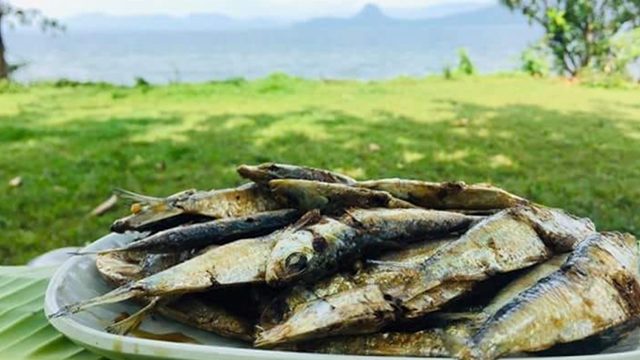SUMMARY
This is AI generated summarization, which may have errors. For context, always refer to the full article.

BATANGAS, Philippines – The Department of Environment and Natural Resources (DENR) in Calabarzon said it will conduct intensive monitoring of the Sardinella tawilis population in Taal, Batangas.
The plan came after the Switzerland-based International Union for Conservation of Nature (IUCN) listed the Sardinella tawilis as endangered.
According to the IUCN’s assessment, “within Lake Taal, there are major threats to fish diversity and this species due to overexploitation, pollution, and competition and/or predation with introduced fishes, resulting in continuing declines in habitat quality and number of mature individuals.”
The assessment was done on February 28, 2017, with results published in 2018.
A document from the DENR-Calabarzon revealed that numerous Philippine researchers have noted a significant decline in the catches of tawilis since 1998. They estimate that harvest has declined by about 49% over the past 10 years.
“Fishing effort using illegal gears which target this species in the lake is increasing, but at this time the rate of increase has not been quantified specifically, so it is inferred that the population has declined by at least 50% over the past 10 years, which qualifies it for Endangered,” the research noted
The environment department said it will include the water quality of the Taal Lake in its monitoring.
The DENR-Calabarzon’s regional and provincial offices as well as the regional office of the Bureau of Fisheries and Aquatic Resources (BFAR) will also discuss the listing to decide on policy recommendations on January 29.
But, according to the environment department, the Philippine government’s policy does not officially and automatically use the IUCN Red List – a list containing the conservation status of species.
Both BFAR and DENR rely on definitive rules, such as Fisheries Administrative Orders or Department Administrative Orders, respectively, in classifying a species as endangered. Under wildlife laws, the penalty for catching an endangered species is up to 12 years imprisonment.
Following the listing, both agencies have the option to either issue department orders that will prohibit the catching of the sardine, or determine if a given catch is within capacity and the measures placed are sufficient to address the concern.
The IUCN, which is composed of both government and civil society organizations, is the “global authority on the status of the natural world and the measures needed to safeguard it.”
A PDF version of the report can be downloaded here. – Rappler.com
Add a comment
How does this make you feel?
There are no comments yet. Add your comment to start the conversation.